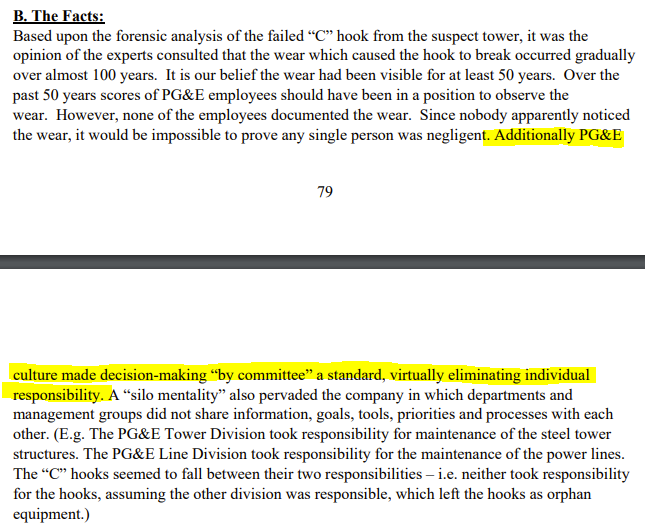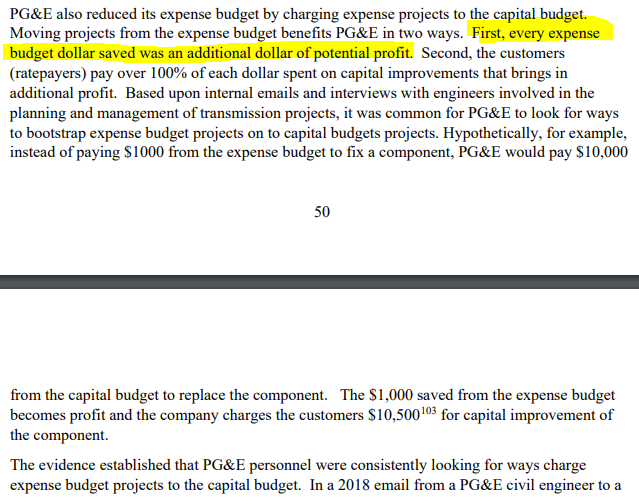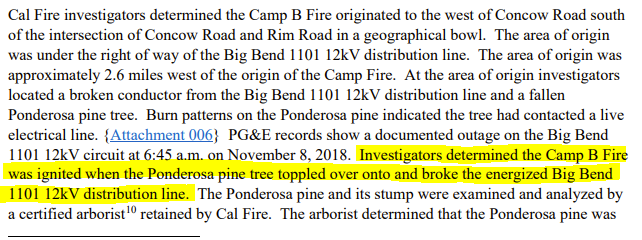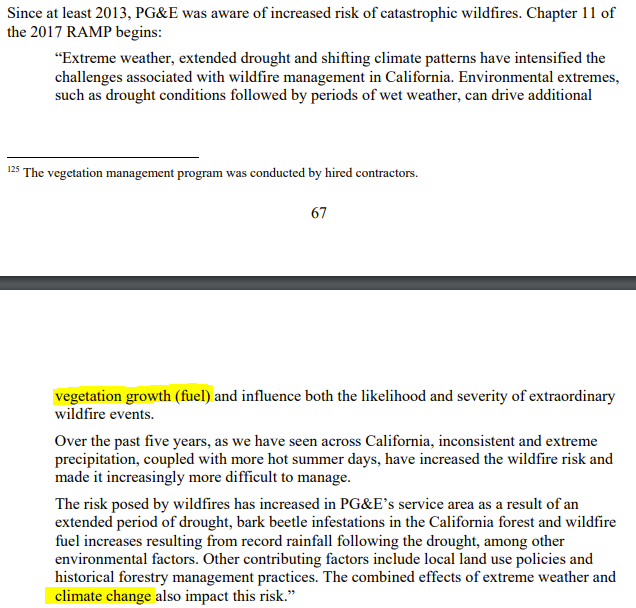on June 16 of this year, PG&E pled guilty to charges of unlawfully causing a fire and 84 counts of involuntary manslaughter. their penalty? a $4 million fine.
so what about the managers and executives at PG&E who were responsible? can we hold them personally liable? apparently, there& #39;s not enough evidence. but why?
in fact, they had a perverse incentive to NOT maintain things, since those costs came directly out of their profit!
so despite PG&E& #39;s criminal negligence, there& #39;s a good chance that Paradise would have burned down anyway, even if they had good records and had kept the tower maintained. surprising? read on...
it turns out there was a second, unrelated fire that started at almost the same time and almost the same place!
...and it turns out this was *not* PG&E& #39;s fault. there& #39;s no way the inspectors, even if they were competent, could have known that the tree would fall.
here& #39;s the second, more insidious cause: climate change. extreme weather->more vegetation->increased fuel load as well as hotter/drier weather.
while solving climate change is a good long term goal (although something that the human race is notoriously bad at) we need to improve our forestry management practices. and keep better records! and hold people accountable!
ok time for some sources: i am mainly relying on the excellent summary report from the Butte County DA: https://www.buttecounty.net/Portals/30/CFReport/PGE-THE-CAMP-FIRE-PUBLIC-REPORT.pdf?ver=2020-06-15-190515-977
i">https://www.buttecounty.net/Portals/3... recommend you read the whole thing.
i">https://www.buttecounty.net/Portals/3... recommend you read the whole thing.
the DA& #39;s report also discuss the legal and accounting angles, which are fascinating but far outside my area of expertise.
the Wikipedia article on the Camp fire is decent for general information. https://en.wikipedia.org/wiki/Camp_Fire_(2018)">https://en.wikipedia.org/wiki/Camp...
i noticed in the comments that some people advocate nationalizing the electric company. it sounds nice but it& #39;s not a panacea: a government agency and a private company are just groups of people. what& #39;s important is *how* you organize them and set up accountability.
if you think of PG&E (the organization) as an emergent intelligence, it was set up to optimize only one metric (profit) and utterly failed to take into account another metric (risk).
i& #39;m sure there are people who study this sort of thing who could examine PG&E and point out exactly what caused this organizational failure.
quick disclaimer: my background and area of expertise is electronics. i have an EE degree but i am not officially (according to the state of CA) an "electrical engineer" since i am not a licensed professional engineer.
curious to see what the tower ( #27/222) looks like now? someone took a 360° photo of it! https://goo.gl/maps/LsTjZEv9NijupuGH6">https://goo.gl/maps/LsTj...

 Read on Twitter
Read on Twitter








